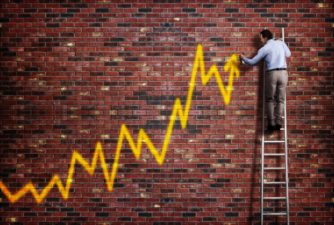S&P/ASX 200 Index (ASX: XJO) investors appear decidedly less than pleased with the sweeping new Trump tariffs announced by the United States president overnight.
In morning trade on Thursday, the benchmark index is down 1.8%.
Donald Trump made his 'Liberation Day' tariff announcement after US stock markets had already closed in the green for the day.
But futures markets are portending a big down day in US stock markets tomorrow.
S&P 500 Index (SP: .INX) futures are down 3.6% at time of writing. And US tech stocks look like they could be in for an even worse drubbing, with Nasdaq Composite Index (NASDAQ: .IXIC) futures down a precipitous 4.5%.
Some 60 nations will be hit with the new Trump tariffs. Cambodia faces the highest impost of 49%, with China getting walloped with a 34% hit on its exports into the US.
Australian exporters are getting off relatively easy, facing the baseline 10% tariff. In 2024, Australia exported some $23 billion worth of items to the US.
Prime Minister Anthony Albanese said the Trump tariffs are "not the act of a friend". But he said Australia will refrain from imposing reciprocal tariffs.
Are any ASX 200 market sectors in the green today?
Drilling down to some specific sectors, Aussie tech stocks are falling hard in the face of the new Trump tariffs, with the S&P/ASX 200 Information Technology Index (ASX: XIJ) down 2.6%.
Finance stocks are also feeling the heat, with the S&P/ASX 200 Financials Index (ASX: XFJ) down 2.2%.
The S&P/ASX 200 Consumer Discretionary Index (ASX: XDJ) is also down 2.2% at this time, though companies focused on consumer staples are faring better amid the new Trump tariffs, with the S&P/ASX 200 Consumer Staples Index (ASX: XSJ) up 0.1%.
Outshining them all today are ASX gold stocks. With bullion's haven status in clear display, the gold price topped US$3,146 per ounce this morning, notching another new record high. As for those ASX gold stocks, the S&P/ASX All Ordinaries Gold Index (ASX: XGD) is up a welcome 1.7% today.
What are the experts saying about the Trump tariffs?
Janus Henderson Investors' Adam Hetts believes the Liberation Day announcement is likely the opening move in lengthy global trade negotiations. But that won't keep the Trump tariffs from roiling the ASX in the short term.
"Eye-watering tariffs on a country-by-country basis scream 'negotiation tactic,' which will keep markets on edge for the foreseeable future," Hetts said (quoted by Bloomberg).
Jones Trading Institutional Services' Michael O'Rourke cautioned that pending reciprocal tariffs could continue to unsettle markets.
According to O'Rourke:
That should slow trade and raise prices squeezing profit margins. This will further slow a decelerating economy as it creates friction and distortion in global trade. I think we need to expect retaliation, which will likely lead to further escalation.
Northlight Asset Management's Chris Zaccarelli added:
The silver lining for investors could be that this is only a starting point for negotiations with other countries and ultimately tariff rates will come down across the board – but for now traders are shooting first and asking questions later.
And Federated Hermes' Steve Chiavarone said the Trump tariffs could create some stock market bargains.
"This may create enough of a selloff over the next day or so that it creates a buying opportunity," Chiavarone said.
We'll leave off with Goldman Sachs here, who's strategists advise ASX investors would do well to take the Trump tariffs in stride.
According to Goldman Sachs' portfolio strategists Matthew Ross and Tony Wu (courtesy of The Australian Financial Review):
We continue to highlight that increases in trade uncertainty should not be of great concern for Australia, especially relative to most other nations. Australia has consistently maintained one of the largest trade deficits with the US, while very few ASX firms have meaningful tariff impacts.
While Australia's trade relationship with China seems to be of concern to many investors, we have noted that the majority of our exports to China are consumed domestically and not re-exported. Therefore, as China continues to stimulate its domestic economy to offset the hit to exports, we see a strong case for Australia's overall trade impact to be very modest.









